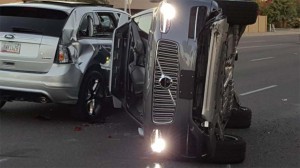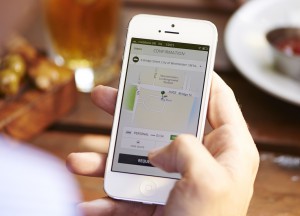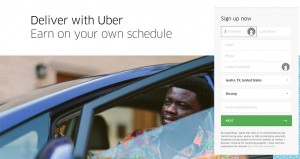Ride-sharing services Uber and Lyft have come under fire for what critics contend is lax security oversight of drivers, a handful of whom have been involved in robberies and assaults in recent years.
A new program of background checks by the State of Massachusetts underscores such concerns and is likely to give critics even more ammunition in the push for stricter driver oversight by car-sharing services – which often lags behind requirements for conventional taxi and livery companies.
Over 8,000 drivers serving Massachusetts – some coming in from neighboring states – will be barred from working for Uber and Lyft as a result of the new program which, Governor Charlie Baker described as “a national standard for driver safety.”
The program has led to 1,500 drivers being banned because of prior charges involving violent crimes. Others were barred because of a variety of other legal issues, including felonies, driving offenses, abuse and exploitation. There were 51 sex offenders. But the majority of the 8,000 were revealed to have previously had their driver’s licenses suspended.
(Uber autonomous car crashes in Arizona. Click Here for the latest.)
The two services have taken heat for a series of crimes committed by drivers, including robbery and assault. An Uber driver in Michigan committed multiple murders a year ago, though he was not carrying passengers at the time.
Both Uber and Lyft have argued that their current background checks are adequate, and they have, at times, taken steps to resist demands for more aggressive probes. Uber, in particular, has stopped operations in a number of locales, including the City of San Antonio, to protest what it has described as an “excess” regulatory environment, including demands for stricter background checks.
But both Uber and Lyft last November agreed to let the state run its own background checks in return for being allowed to start serving Boston’s busy Logan Airport.
(Uber exec in legal trouble as Waymo amps up lawsuit. Click Here to find out why.)
Lyft responded to the Massachusetts results by noting it sometimes does not discover prior problems with drivers’ records because of legal restrictions. One of the drivers covered by the new ban had been involved in an assault and battery case with a family member 25 years ago but was never actually convicted.
“Under Massachusetts law, Lyft’s commercial background check provider, like all consumer reporting agencies, is legally prevented from looking back further than seven years into driver applicants’ histories. The state does not face the same limitation, which likely explains why a small percentage of our drivers failed the state’s background check while passing ours,” Lyft said in a statement.

The results of the Mass. program come as another blow to Uber which was embarrassed by a recent crash involving its autonomous Volvo.
For its part, Uber issued a statement decrying the new program as “unfair and unjust” because of the indefinite lookback period. Critics of the state program noted that in some instances, a ride-sharing driver could be barred even if they were not actually convicted of a crime but were simply charged.
“We have a chance to repair the current system in the rules process so that people who deserve to work are not denied the opportunity,” Uber stated.
Nonetheless, the results of the Massachusetts program will likely lead critics of the ride-sharing services to demand companies like Uber and Lyft upgrade their own security programs by, among other things, using fingerprinting and more detailed background checks.
(Daimler, Bosch team up to put robo-cabs on the road by 2021. Click Here for the story.)


